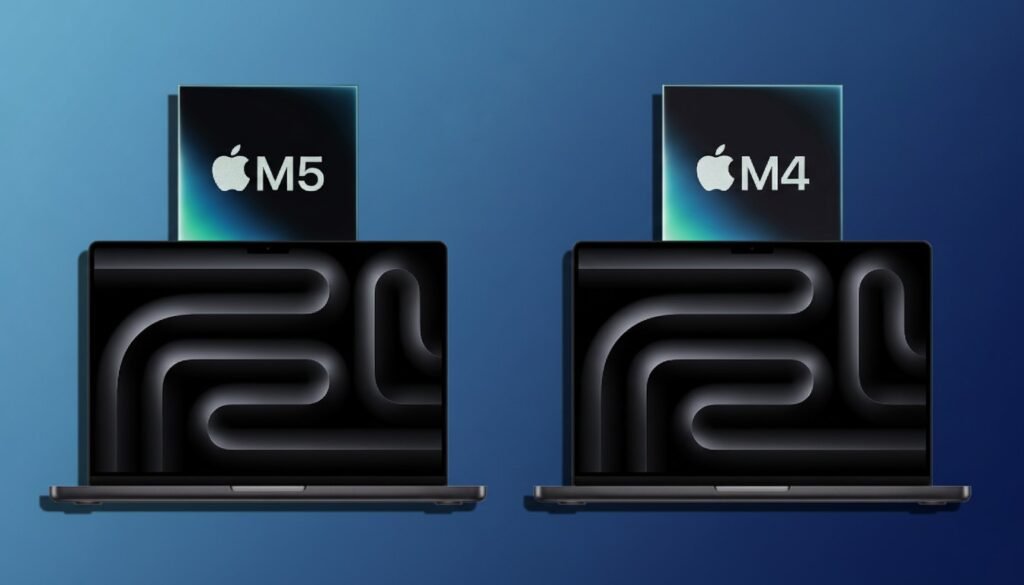Apple’s October 2025 refresh added the M5 chip to the 14-inch MacBook Pro lineup. Underneath the hood, major architectural changes push Macs further into on-device AI and GPU-centric workloads. We compare the new M5 to the M4 family across every angle that matters.

The Verdict Up Front
Choose the M5 MacBook Pro if…
You want a modern, affordable Pro laptop with powerful AI accelerators for creative work, excellent battery life, and solid all-around performance.
Choose an M4 Pro / Max if…
You are a heavy pro user whose work demands the highest CPU/GPU core counts, massive memory bandwidth, and the largest unified memory options (up to 128 GB).
Deep Dive Analysis
🧠 Silicon: CPU & GPU Core Count
The M5’s architectural shift is profound. By integrating Neural Accelerators directly into each GPU core, Apple claims multi-fold improvements in AI tasks. This makes the M5 incredibly efficient for on-device generative AI and image processing. However, the M4 Pro/Max configurations still hold the raw multi-core crown for traditional CPU-heavy workloads.
💾 Peak Memory Bandwidth (GB/s)
Memory bandwidth is critical for pro workloads. If your workflow involves real-time 8K ProRes editing, large neural networks, or 3D rendering with massive textures, the vastly wider memory pipes of the M4 Pro and M4 Max remain the superior choice. For most other pro tasks, the M5’s 153 GB/s is more than sufficient.
🔌 I/O: Thunderbolt Bandwidth (Gb/s)
The move to Thunderbolt 5 on the M4 Pro/Max models is a significant advantage for professionals using high-speed external storage, multi-display setups, or external GPU enclosures. The M5’s Thunderbolt 4 is still very fast and capable for the vast majority of users.
Quick Comparison Table
Conclusion
The M5 MacBook Pro is Apple’s strategic step toward an AI-native Mac lineup, raising the baseline for on-device AI compute in a battery-friendly package. For most users—students, creators, developers, and mobile pros—the M5 14-inch delivers an excellent mix of power, efficiency, and price. The M4 Pro/Max models, however, remain the top choice for power users who need the absolute highest multi-core performance and widest memory bandwidth for specialized studio work, similar to the distinctions seen in our MacBook Air vs Pro comparison.




